Additionally, advanced techniques for enhanced car longevity and common missteps are discussed.
This comprehensive guide is designed to empower owners with the knowledge and skills to effectively maintain their vehicles, ensuring their safety and vehicle's optimal performance on Massachusetts' roads.
Understanding Basic Car Maintenance Duties
Tire pressure management and engine oil changes are two fundamental aspects of this routine.
- Tire pressure management is a critical safety measure that directly affects the car's efficiency. An improperly inflated tire can lead to increased wear, reduced fuel efficiency, and impaired handling. Therefore, it's imperative to check the tire pressure at least once a month using an accurate pressure gauge. The ideal tire pressure can be found in the vehicle's owner manual or on a sticker inside the driver's door.
- Engine oil changes, on the other hand, are essential to the overall health of the car's engine. The engine oil lubricates, cools, and cleans internal engine components. Over time, the oil deteriorates and loses its effectiveness, thus necessitating periodic replacement. Most manufacturers recommend changing the oil every 3,000 to 5,000 miles, but this can vary depending on the vehicle's make, model, and year. Regular oil changes extend the life of the engine and improve vehicle performance.
Essential Tools for Every Car Owner in Massachusetts
Let's consider these four essential tools:
- Multi-bit Screwdriver: A versatile tool for various screws in your car.
- Adjustable Wrench: This tool can adjust to multiple bolt sizes, saving you time and effort.
- Pliers: Essential for gripping, bending, or cutting wires.
- Flashlight: A lifesaver during night-time emergencies or poorly lit situations.
Having these tools readily available in your vehicle not only ensures your preparedness for unforeseen circumstances but also fosters a sense of self-sufficiency. Coupled with a well-organized tool storage solution, your efficiency in handling routine maintenance and emergency repairs increases significantly.
Read more:
Dealing with Massachusetts' Unique Weather: Car Care Tips
Massachusetts' winter often sees temperatures plummeting below freezing, requiring a meticulous approach to winterizing vehicles. This includes checking the antifreeze levels to avoid engine freeze-up and ensuring the battery is in optimal condition to withstand the cold. Tire pressure tends to decrease with falling temperatures, which could lead to underinflation, affecting the vehicle's grip on icy roads. Regular inspection and adjustment of tire pressure can avert potential accidents.
Additionally, windshield visibility can be impaired by frost, snow, or ice. Utilizing winter windshield wiper fluid and replacing wiper blades can make a substantial difference in visibility during snowfall or sleet.
Advanced Maintenance Techniques for Prolonged Car Lifespan
The application of advanced diagnostics and performance enhancements can significantly contribute to the longevity of a vehicle. Advanced diagnostics allow for early detection of potential issues, thus preventing costly repairs and extending the life of the vehicle. Performance enhancements, such as the use of higher quality engine oil and the installation of performance air filters, can greatly improve the longevity of the vehicle by optimizing the performance and efficiency.
Routine maintenance is also crucial in prolonging the lifespan of a vehicle. Regular maintenance activities such as oil changes, brake inspections, and tire rotations help to keep the vehicle in optimal running condition.
Additionally, timely repairs play a vital role in enhancing the longevity of the vehicle. Prompt attention to necessary repairs can prevent minor issues from escalating into major problems.
Common Car Maintenance Mistakes and How to Avoid Them
The first common mistake is neglecting tire pressure. This can lead to poor fuel efficiency, and in severe cases, tire blowouts. Preventive measures include regular checks and maintaining manufacturer-recommended tire pressure levels.
The second mistake is failing to change engine oil regularly. This can lead to engine damage due to increased friction and heat. Scheduled oil changes are an efficient preventive measure.
Thirdly, many disregard the need to replace worn-out brake pads, leading to compromised stopping power and safety. Regular inspection and timely replacement are essential.
Fourthly, ignoring the coolant can cause overheating and irreversible engine damage. Regular coolant checks and changes can prevent this.
Lastly, overlooking minor issues like flickering lights or abnormal noises can escalate into costly repairs or even accidents. Early diagnosis and repair are crucial.
Understanding these mistake repercussions can encourage car owners to practice preventive measures, thereby prolonging vehicle lifespan, improving safety, and reducing repair costs. Car maintenance is not merely a responsibility but an art that requires knowledge and meticulous attention to detail.
Frequently Asked Questions
In Massachusetts, legal requirements for car maintenance include annual safety inspections and biennial emissions testing. Adherence to these Massachusetts inspections and emission standards ensures compliance with state law and promotes environmental sustainability.
How Can I Find a Reliable Mechanic in Massachusetts?
To find a reliable mechanic in Massachusetts, consider checking the mechanic's credentials, including certifications and experience. Additionally, perform a cost comparison among different service providers to ensure you're receiving fair and competitive pricing.
Are There Any Massachusetts State Programs or Resources for Learning More About Car Maintenance?
Yes, Massachusetts offers several resources for learning about car maintenance. Online courses are available that cover DIY Maintenance. Additionally, local libraries often provide access to automotive repair databases for residents.
What Are the Best Car Maintenance Practices Specifically for Hybrid or Electric Vehicles in Massachusetts?
Optimal maintenance for hybrid/electric vehicles in Massachusetts encompasses understanding the state's charging infrastructure, regularly inspecting battery health, and implementing winter care strategies to protect the vehicle from cold weather conditions.


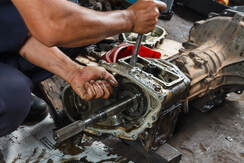
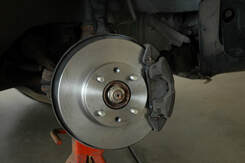
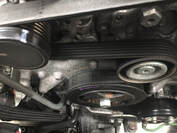
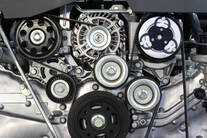
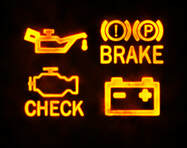
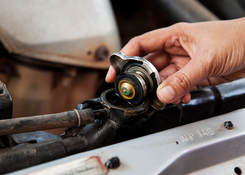
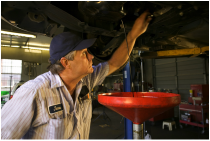
 RSS Feed
RSS Feed